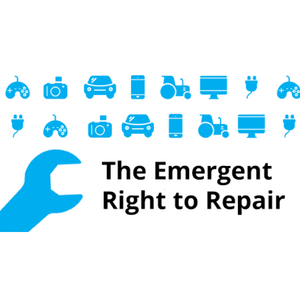The Emergent Right to Repair
Friday, April 22nd - Friday, April 29th, 2022
Co-sponsored by the Berkeley Center for Law & Technology and
The Spangenberg Center for Law, Technology and the Arts at Case Western Reserve University
Webcast Archive Content
Event Description
NOTE: You can choose to attend one or both of the following sessions. Please note that times are Pacific Standard Time.
Apr 22, 2022 09:00 AM PST
Apr 29, 2022 09:00 AM PST
In years past, consumers didn’t think twice about taking a broken car or toaster to a local repair shop or even fixing it themselves. But with today’s software-enabled products, consumers can no longer take those options for granted. In response to legal and technological restrictions, a growing movement advocating a right to repair has emerged, despite pushback from some quarters.
The right to repair is at the center of a key policy debate. The Biden Administration and a unanimous FTC recently voiced support for competition and consumer choice in repair markets. Legislation under consideration in dozens of states would facilitate consumer and third-party repair. And regulators around the world have begun to embrace the repair agenda. But manufacturers and device makers remain skeptical of an unfettered right to repair, citing concerns over intellectual property rights, reliability, security, and lost revenue.
This symposium will consider the complex, overlapping set of policy questions at the center of the repair debate. How do restrictions on repair, or their elimination, affect competition? How might policymakers resolve potential tensions between the right to repair and the intellectual property rights of device makers? Would the consumer benefits of open repair markets outweigh their risks? And what legislative solutions or other policy interventions are best-suited to address these questions?
NOTE: Due to continuing concerns over surging COVID transmission rates, this event will be held virtually.
If you require an accommodation for effective communication (ASL interpreting/CART captioning, alternative media formats, etc.) to fully participate in this event, please contact Nathalie Coletta at natcoletta@berkeley.edu or 510-643-5518 with as much advance notice as possible and at least 10 business days in advance of the event.
Event Location
Virtual


